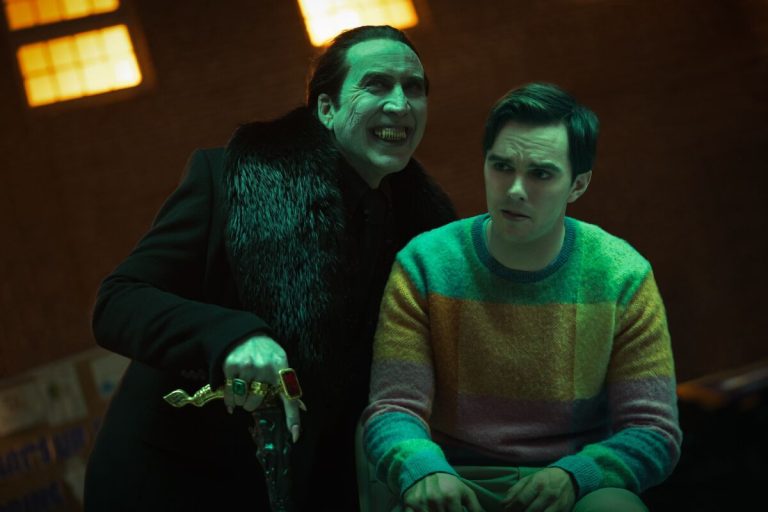Teri Baaton Mein Aisa Uljha Jiya (2024) Movie Review: Bollywood’s experimentation with sci-fi has always been fascinating. While inarguably and excessively borrowing from renowned international films, such projects either lead into delightfully self-aware movies – as in the case of “Ra.One” or even “Action Replayy,” or straight-up disasters such as “Love Story 2050”. In one of the first major rom-com outings from the industry this year, debutant writer-directors Amit Joshi and Aradhana Sah extend themselves into robot-impersonating humans. But does the film manage to elevate above its gags?
Robotics engineer Aryan (Shahid Kapoor) visits his US-based aunt and doting boss, Urmila (Dimple Kapadia), to work on a secret project. She later sets him up with her caretaker, Sifra (Kriti Sanon), an attractive and extremely capable girl who organizes Aryan’s wardrobe and whips up a sushi dinner for the guy. Eager to serve his demands, she comes across as just the ideal person Aryan could be around. Smitten by these attributes, they end up together in bed. It’s only the next morning, however, that he realizes Sifra is an AI-generated robot.
At one point in the movie, Aryan expresses how his friends need to be “gentle” with Sifra because she’s like a young girl learning about the world. This, of course, comes secondary to him developing feelings for her despite knowing her genesis. “I’m your admin,” he proclaims to her at another point. It’s here when the realization of this being anything but a clever read on modern-day romance kicks in. The conceit ceases to appear intriguing the moment you look into the mansplaining and egoistic persona of the male lead. You stick along the journey, following the film into its second act for it to potentially build upon its intuitive premise. Then you wonder whether the approach had been faulty from the conceptual level itself. You wouldn’t need an AI to guess the answer.

Of course, one can’t expect a mainstream Bollywood flick of this stature to go all inward in terms of its characterization. TBMAUJ goes outward in the most outlandish and extravagant way. But the fault lines crack open when you realize the makers never considered how those things can, at times, not be so mutually exclusive. The result is scenes that seem so awkwardly staged that they cease any room of thought or contemplation that may have otherwise arisen out of its central conflict.
In one of the earliest scenes in the film, we watch Aryan drive away a new housemaid while boasting about his choices in daily life. It soon becomes apparent that he’s the kind of subservient and infantile machismo figure that’s become a staple for contemporary Hindi cinema. His drive only gets reinforced once he falls for Sifra. He teaches her smoking and kissing and even educates her with cheeky slang. One may say that perhaps that’s why he falls for her. He then takes up the challenge of integrating her into his traditional family back in India.
But rather than using its sci-fi roots to inform the hypocrisies and ironies of a patriarchal society, writer-directors Amit Joshi and Aradhana Sah resort to juvenile gags to push the narrative forward. Where there could’ve been an opportunity to explore how an Indian household would exploit a woman with a lack of agency, there’s only a looming sensibility of soap operas that could and have pulled off similar character juxtapositions much more playfully.
As we enter the second month of the new year, the discourse from one of the most controversial Bollywood films from last year still remains hot. While many would look at a film like TBMAUJ and draw notable parallels from some of the most accomplished sci-fi films from the West, it finds itself closer to a film like “Animal” in terms of the cultural context. The catch isn’t that it’s as provocative as the Sandeep Reddy Vanga film. It’s that it doesn’t have to be.
Where there could’ve been a more self-reflexive approach to the kind of entitlement Indian men often feel towards their partners, we only get the journey of a tortured hero. Any other reading of the film would place too much merit in its execution, as the only kind of conviction that comes across well is one where men still go around pronouncing their masculinity in a world where they’re surrounded by robots that are trained to feed onto their very insecurities.






![50 Years Later: Flesh [1968]](https://79468c92.delivery.rocketcdn.me/wp-content/uploads/2018/09/vlcsnap-error218.jpg)